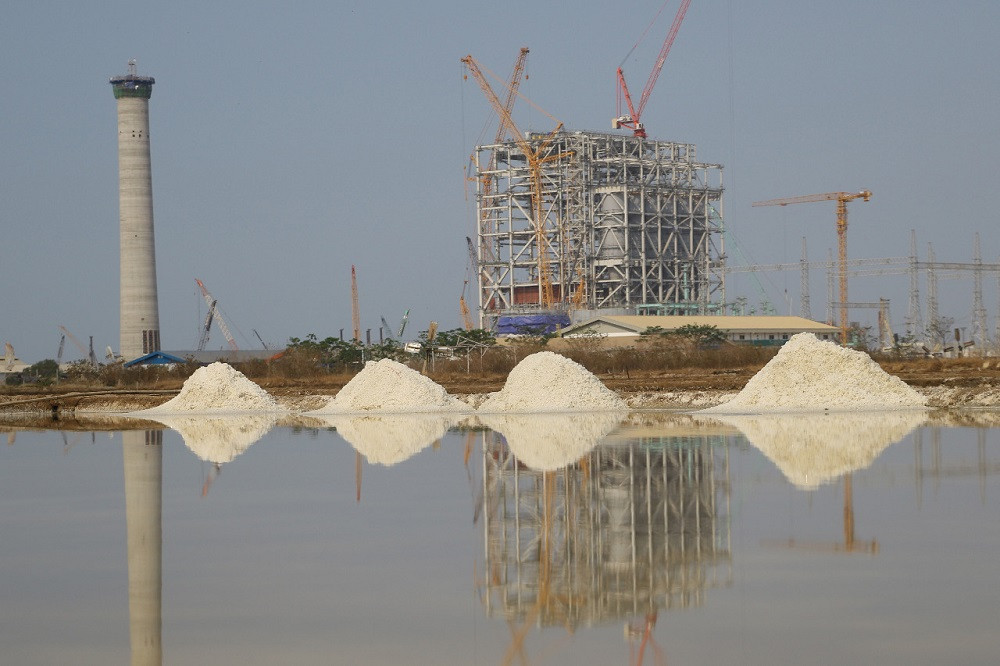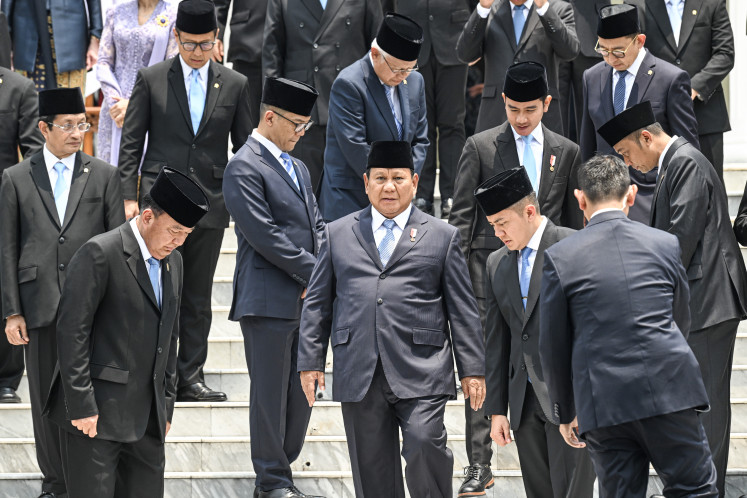Popular Reads
Top Results
Can't find what you're looking for?
View all search resultsPopular Reads
Top Results
Can't find what you're looking for?
View all search resultsCoal power projects in doubt as Chinese funding dries up
Following similar vows from South Korea and Japan, China’s pledge to stop building new coal-fired power plants jeopardizes planned coal energy projects in Indonesia.
Change text size
Gift Premium Articles
to Anyone
C
hina’s recent pledge to stop building new coal-fired power plants overseas is expected to throw a spanner in Indonesia’s coal energy development.
During his address at the United Nations General Assembly on Sept. 21, President Xi Jinping announced that China would stop building new coal-fired power plants abroad as part of its climate pledge.
Local stakeholders said the Chinese decision would disrupt plans to build new coal power plants in Indonesia. Meanwhile, projects included in the electricity procurement plan (RUPTL) and those that had reached power purchase agreements (PPAs) or financial closure would continue.
Experts have acknowledged, however, that China’s move would significantly affect coal power projects in Indonesia. They also recommended that state-owned electricity company PLN and the Energy and Mineral Resources Ministry review the RUPTL and planned coal energy projects, for which it would become increasingly difficult to obtain international funding.
APAC coal market analyst Shirley Zhang of global energy, chemicals and minerals consultancy Wood Mackenzie said that the projects most affected would be those that lacked financial commitments and relied heavily on foreign investment, including Indonesian coal power plants totaling 29 gigawatts in output capacity that were set to start operating after 2025.
“The key is whether and when countries can afford to retire existing [coal plants],” she said in a statement on Sept. 22.
The move from China, the world's largest financier of coal energy projects, alongside earlier vows from Japan and South Korea this year to exit coal, leaves a large number of the world’s planned coal energy projects in limbo.
According to the Institute for Energy Economics and Financial Analysis (IEEFA), power plants accounting for 54 percent of a total 18 GW of new coal capacity in Indonesia have Chinese backing.
“Xi Jinping’s statement will reduce Chinese investors’ interest in coal plant projects in Indonesia,” Adhityani Putri, executive director of renewables pressure group Yayasan Indonesia Cerah, said on Tuesday.
The energy ministry did not immediately respond to The Jakarta Post’s request for comment on the issue.
Read also: China doubles down on coal plants abroad despite carbon pledge at home
IEEFA analyst Elrika Hamdi said that funding for new coal plants would be hard to come by, as more than 180 global financial institutions had announced their exit from coal investments.
“Some banks in Asia, such as Bangkok Bank and Indonesian banks with no strict policies yet on [coal], could still finance coal-fired power plants,” she told the Post on Monday.
These banks had relatively low capital strength, however, so if they decided to finance a multibillion-dollar coal energy project, they would have to form interbank syndicates, which was “not a simple task”, she said.
Read also: ADB, PLN consider plan to retire Indonesian coal plants early
Elrika added that the government should consider making a clear decision on the viability of coal-fired power plants that had not signed PPAs or financial closure documents.
She noted that several projects still in the planning stage had links to China in terms of funding and capital, including the Jambi 2 power plant in Jambi and units 3 and 4 of the Nagan Raya power plant in Aceh.
Indonesian Independent Power Producers Association (APLSI) chairman Arthur Simatupang told the Post on Tuesday that no information was yet available on whether these projects would continue or be canceled.
Also on Tuesday, Indonesian Coal Mining Association (APBI) executive director Hendra Sinadia told the Post that foreign demand for the country’s coal would decline gradually over the next two to three decades, since many coal power plants in Indonesia and the world were expected to continue operating for around 25 years.
“Nevertheless, [China’s decision] will have an impact in the long run,” Hendra underlined.
As of April, PLN was operating coal plants with a combined capacity of 32.9 GW, which accounted for 45 percent of the country’s total installed capacity in coal energy.
Energy ministry data shows that more such plants are in the pipeline and estimates that Indonesia’s last coal plant would be retired in 2058. The country may achieve net-zero emissions only by 2060, at least a decade later than the 2050 deadline espoused by many countries.










